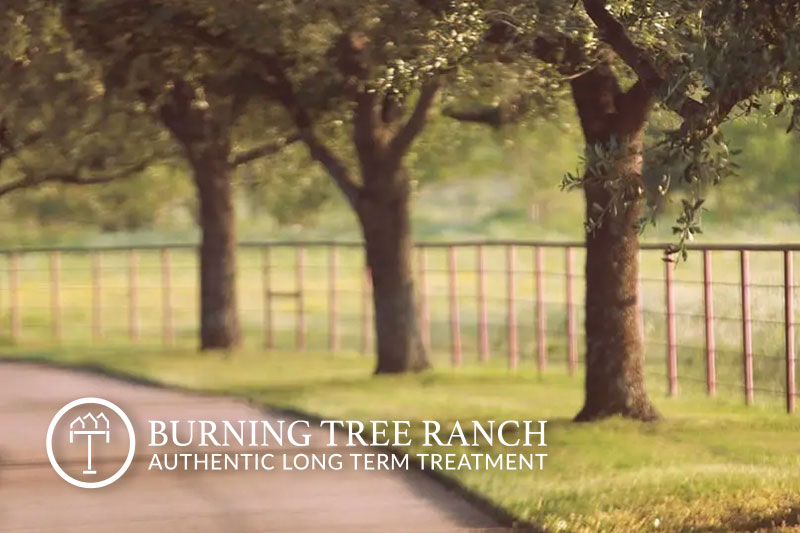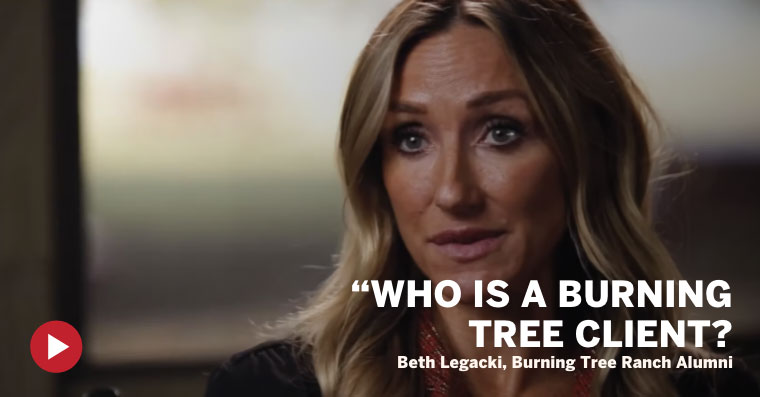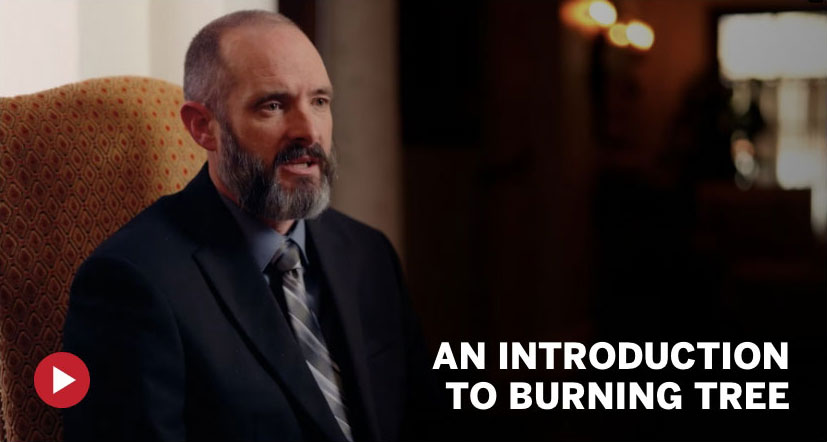Long-Term Addiction Treatment Referrals for Guardians & Conservators
Guardians or Conservators are appointed to make decisions on behalf of individuals who are deemed unable to manage their affairs due to mental incapacity, physical disability, or other reasons, including substance use disorders (SUD). They play a crucial role in safeguarding their wards’ well-being and financial interests. Below, we list several circumstances under which they might refer a person to a long-term treatment center like Burning Tree Ranch.
Who We Are
Burning Tree Ranch is a specialty program dedicated to the treatment of chronic addiction and mental health. Our program is long-term, progress-based, and highly intensive. Since 1999, we have supported countless referring professionals in delivering ethical, high-quality solutions to the clients and families they represent.
Circumstances for Referral to Long-Term Treatment
Deterioration of Physical or Mental Health
If the guardian or conservator observes a significant decline in the individual's health that can be attributed to substance use, initiating treatment could be crucial for the ward’s well-being.
Inability to Manage Financial Affairs
Substance use may lead to financial irresponsibility or mismanagement. If a conservator notices unexplained expenditures, debts, or other financial issues related to addiction, this could necessitate a referral to treatment.
Legal Issues Stemming from Substance Use
Encounters with the legal system due to behaviors influenced by substance use might prompt a guardian or conservator to seek addiction treatment for their ward, aiming to address the root cause of these issues.
Risk to Self or Others
If the guardian or conservator assesses that the individual's substance use poses a danger to themselves or others, they may decide that addiction treatment is necessary to mitigate these risks.
Failure to Fulfill Daily Responsibilities
Observing the individual's consistent failure to meet daily living responsibilities, maintain employment, or care for the family due to substance use can be a clear indicator of the need for intervention.
Observations Informing the Need
Guardians and conservators are in a position of trust and have a legal duty to act in the best interests of their wards. When substance use disorders are identified as a significant factor affecting the ward’s health, safety, and financial stability, these fiduciaries may see referral to long-term, chronic addiction treatment not only as a necessary step for the individual’s recovery but also as an integral part of fulfilling their protective role.
- Physical Signs of Addiction: Guardians or conservators might notice physical signs of chronic substance use, such as weight loss, poor hygiene, or visible withdrawal symptoms.
- Behavioral Changes: Significant changes in behavior, including increased secrecy, withdrawal from social activities, or aggressive behavior, can indicate an underlying substance use problem.
- Financial Disarray: Noticing financial instability, such as draining savings accounts for no apparent reason or accruing debt, can signal a substance use issue requiring attention.
- Medical Reports or Professional Advice: Receiving information from medical professionals or encountering advice from social workers or therapists suggesting the ward struggles with substance use.
- Direct Communication: The ward may express concerns about substance use or directly request help, providing a clear impetus for seeking treatment.

Navigating Client Relationships: When Estate & Probate Attorneys Encounter Addiction
The responsibility of a Guardian or Conservator to recommend long-term chronic addiction treatment for their ward is grounded in their fundamental duty to act in the best interests of the individual they are appointed to protect. This role encompasses not only managing financial affairs and daily living decisions but also ensuring the overall well-being and health of the ward.
Acting in the Ward’s Best Interest
Guardians and Conservators are tasked with making decisions that promote the health and safety of their wards. When substance use disorder (SUD) is present, recommending treatment is often in alignment with protecting the ward’s physical and mental health.
Legal and Ethical Obligations
As fiduciaries, Guardians and Conservators must place the ward’s interests above their own, managing not just financial affairs but also making healthcare decisions when authorized, including the initiation of SUD treatment if it is deemed necessary.
The decision to recommend addiction treatment should be informed by medical advice, the ward’s situation, and the potential benefits and consequences of such treatment. It may involve consulting with healthcare professionals and addiction specialists and considering the ward’s wishes to the extent they can express them.
Observing and Assessing Needs
Guardians and Conservators should be observant of signs that indicate a ward is struggling with addiction, such as deteriorating health, financial issues related to substance use, or legal problems.
The decision to recommend treatment should also consider how the ward’s substance use affects their quality of life, including their ability to engage in daily activities, maintain relationships, and fulfill their potential.
Implementing the Recommendation
While recommending treatment, Guardians and Conservators can also provide support by identifying appropriate treatment facilities, assisting with the logistics of entering a program, and managing any financial aspects of treatment.
In cases where the ward is not capable of consenting to treatment due to their condition, the Guardian or Conservator may need to seek legal authority to make healthcare decisions on their behalf, always aiming to act within the scope of their powers and in the ward’s best interest.

Empowering Recovery: The Role of Guardians and Conservators in SUD Treatment
Guardians and Conservators, as trusted professionals appointed to protect their wards’ interests, can play a pivotal role in motivating individuals under their care to seek and complete treatment for substance use disorders (SUD). Their position allows them to use compassionate encouragement and practical strategies to guide their wards towards recovery.
CREATING MOTIVATION FOR TREATMENT
- Highlighting the Benefits of Treatment: Guardians and Conservators can discuss the positive impacts of treatment on the individual’s health, well-being, and future opportunities. Emphasizing the potential for improved quality of life and relationships can motivate wards to embrace treatment.
- Connecting Treatment to Personal Goals: By linking the completion of a treatment program to personal goals or aspirations that the ward has expressed, such as maintaining a job, pursuing education, or improving family relationships, Guardians and Conservators can create a strong incentive for seeking treatment.
- Involving the Family: Encouraging family involvement and support can motivate individuals to seek help. Guardians and Conservators can facilitate family meetings where the benefits of treatment are discussed, and the individual can feel supported by loved ones.
Incorporating Leverage for Treatment
- Setting Conditions on Financial Support: Conservators managing the individual’s financial affairs can set conditions on financial support or disbursements based on the individual’s engagement with and completion of a treatment program. For example, agreeing to release funds for specific purposes like education or housing is contingent upon regular attendance at treatment sessions.
- Utilizing Legal Tools: In some jurisdictions, Guardians and Conservators might have the authority, under certain conditions, to make healthcare decisions on behalf of their wards, including consenting to medical treatment if the individual is unable to do so themselves due to their condition.
- Creating Incentive Trusts: If part of estate planning involves setting up trusts for the benefit of the individual, the Guardian or Conservator can work with estate planning attorneys to create incentive trusts that release funds based on specific criteria, such as successful completion of a treatment program.
- Facilitating Access to Resources: By actively researching and facilitating access to quality treatment programs, financial assistance, and aftercare support, Guardians and Conservators can lower the barriers to entering and completing treatment.
- Documenting Progress and Celebrating Milestones: Recognizing and celebrating each individual’s steps toward recovery can be a powerful motivational tool. Guardians and Conservators can report progress and arrange for small rewards or acknowledgments of achievements.
Guardians and Conservators must navigate their roles with sensitivity and respect for the individual’s autonomy, aiming to balance providing necessary support and encouragement for treatment and respecting their rights and preferences. The ultimate goal is to act in the ward’s best interest, facilitating a path to recovery that respects the individual’s dignity and supports their overall well-being.
Considering Long-Term Treatment for Your Client
The Need to Act
What are the circumstances under which you may refer a person to long-term, chronic addiction treatment? What are you observing that informs you of the need to act?
Fiduciary Duty
Do you have a moral or fiduciary responsibility to make a recommendation for long–term chronic addiction treatment for your client?
Motivation for Completing Treatment
What motivation for treatment might you be able to create as a trusted professional serving a family’s best interest? How might you incorporate leverage for the client to go and complete treatment?

We've Worked Closely with Finance Professionals to Refer Clients to Burning Tree for Long-Term Treatment
How Do I Know If My Loved One is a Fit for Burning Tree Ranch?
Authentic Long-Term Treatment
Burning Tree specializes in treatment for Chronic Relapse
We understand the complex, multi-faceted issues many of our families face when it comes to addiction. The circumstances of long-term residential treatment allow us to create a treatment program unlike anything else in the world.
Operating outside the limitations of a traditional 30, 60 or 90-day format, Burning Tree adheres to progress-based metrics that inform the clinical treatment team of the unique mental, emotional and spiritual needs of the individual.
We are the only treatment center in the United States that combines time-intensive residential treatment with a therapeutically coordinated aftercare program focused singularly on the treatment of chronic relapsers.
Featured In Top Publications













